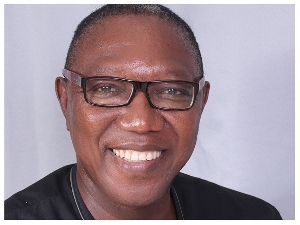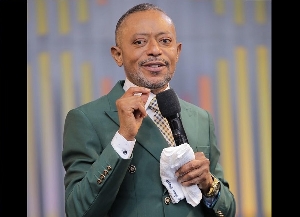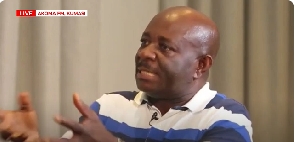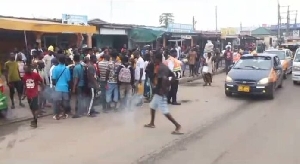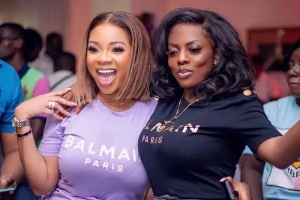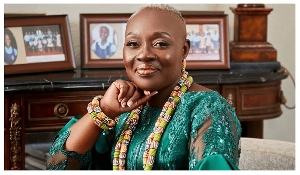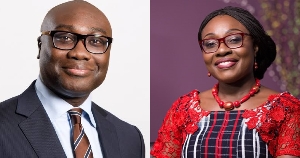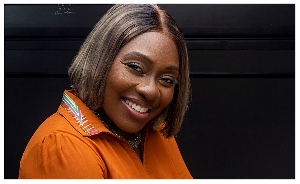 President Nana Addo Dankwa Akufo-Addo and John Mahama, flagbearer of the NDC
President Nana Addo Dankwa Akufo-Addo and John Mahama, flagbearer of the NDC
Political party strategists have over the years used various communication tools and strategies to create a desired perceptual maps in the minds of voters with the primary aim of influencing voters’ decision-making process at the polls. One of such strategies is the creation of perception of corruption in the minds of voters prior to an election.
This article looks at how the perception of allegations corruption levelled against the two main presidential aspirants; Nana ADDO-DANQUAH AKUFFO ADDO of the NPP and John DRAMANI MAHAMA of the NDC will play out in the minds of voters in the upcoming 2020 presidential election.
All over the world, CORRUPTION defines and plays a critical role in the success or failure stories of every government and Ghana is not an exception to this reality. Indeed corruption permeates through all the indicators and indexes that are used to measure the performance of governments whether democratic or military and any political party which undermines perception of corruption will have itself to blame.
The corruption tag is mostly driven by voter perception. Voter Perception is simply defined as the mental interpretation of events in the minds of voters and is influenced by so many factors including voters’ level of education, maturity, political affiliations, historical antecedents of a political party in power, complexity of events among others. Being a creation of events in the political environment, political opponents as a strategy could deliberately create it against the government in power and the government in power can itself knowingly or unknowingly create it against itself.
Simply put, perception is both controllable and uncontrollable. Therefore the responsive measures put in by the government in power to deal with perceived allegations of corruption when such events occur, can worsen or soften the perception of the corruption tag.
The literature on factors which influences voters’ behaviour at the polls is diverse and broad. From a political marketing perspective, voter attitude, voter belief and voter perception are among the most important variables which influences voter behaviour. Perception whether real or imaginary is an important factor that shapes and influences human behaviour hence its influencing powers in shaping voters’ behaviour in an election cannot be underestimated. Overview of election 2020
The 2020 presidential election in Ghana is going to be a historic one for many reasons. For the first time in the history of Ghana, a former president who has served one term as president is contesting a sitting president who at the time of the election in December 2020, would have also served one term as president.
Both will be seeking a re-election to serve a second term. Secondly, it is the first time in the history of Ghana that one of the two main political parties which have rotated political power since independence in 1957 is fielding a female vice presidential candidate though a relatively lesser political party Progressive Peoples Party had fielded a female vice presidential candidate in the 2016 presidential election.
The National Democratic Congress presidential candidate, former president John Dramani Mahama has chosen Jane Naana Opoku-Agyeman, a female vice-presidential nominee, for the first time in the party’s history. Thirdly, both presidential candidates having been in the front line governance structures of Ghana politics before serving in various capacities as members of parliaments, ministers of state and presidents, they both come into the 2020 presidential election with allegations of corruption against them in what can be described as a contest between two perceived corrupt leaders.
The corruption debate
Come 7th December 2020, Ghanaians will go to the polls to elect a president to steer the affairs of the country. Since independence every successive government (democratic or military) in Ghana have used allegations of corruption against its predecessor forcefully through coup d’états or through the electoral processes to come to power. This they do through the creation of perception of corruption in the minds of voters.
In the past, it was easier for opposition party leaders and its followers and sympathisers to sing loudly the chorus of corruption against the government in power and its presidential candidate because in all cases the largest opposition leader comes into the contest with almost no corruption tag because the opposition leader has never been president before so most often than not has the moral right to sing the corruption chorus the loudest against the government in power and its presidential candidate.
Certainly, this cannot be said of the upcoming presidential election. What is unique about this election is that both presidential candidates by virtue of been a president before comes into the contest with allegations of corruption against their personal image and their party platform on which they are seeking re-election. The challenge for both presidential candidates and their party is how well they can go out to convince the voters that they are less corrupt, in other words the other party and its flag bearer is more corrupt than them.
The NDC government of 2016 headed by former president John Mahama, faced a lot of allegations of corruption charges going into the 2016 general election. Notable among them are: Rlg,Gyeeda, Sada, Brazil 2014, Zoomlion Fumigation, Woyome, Ford Saga, Bus branding. As a party in opposition then, the NPP headed by its presidential candidate now president Nana Addo Danquah Akuffo-Addo heavily trumpeted allegations of corruption against the then NDC government in general and its leader former president John Mahama in particular.
It was so heavily trumpeted that to a large extent it influenced the electoral performance of both parties. In the end, the NPP emerged victorious. In their desperate attempt to win political power, opposition parties trumpets the corruption charges the loudest against the government of the day forgetting that it raises the expectation levels of the same voters they intend to influence while in opposition. In government, it comes back to haunt them as they are mandated by the social contract they signed with the same voters in opposition to manage and fulfil their expectation relative to allegations of corruption levelled against the government in power.
With the current NPP government headed by Akuffo-Addo who have sang the most allegations of corruption chorus against the Mahama led NDC, the general expectations of voters was to see justifiable evidences against the Mahama led NDC government in the form of some prosecutions. One would argue that some prosecutions are ongoing but that is not enough to match the expectations created and aroused in the minds of voters while in opposition particularly in the minds of floating and undecided voters.
Even if some prosecutions have been made or established the question still remains how proportionate are those prosecutions to the overall corruption tag against the Mahama NDC led government? Reference can be made to similar situations of 2008 that brought the NDC government of 2008 into power where allegations of corruption were levelled against the then NPP government in power, but failed to proof same magnitude when in government.
Like the NDC government of 2016 election, which was confronted with high profile allegations of corruption cases, the NPP government of 2020 is confronted with a lot of allegations of corruption cases going into the 2020 election. Some of these high profile allegations of corruption cases revolve around PDS, Premix Fuel , Cash for Seat, BOST Fuel, Kelni GVG, Ghana Cylinder Stimulus Package, Oslo Chancery Scandal, Australian Visa Scandal, PPA Contracts for Sale and now the never ending Agyapa Royalty Deal which is still trending into the election. Both parties have had a trending allegations of corruption cases into the election with the NDC being credited with the Bus Branding with a corresponding Agyapa Royalty Deal for the NPP.
Why do these new high profile cases emerge few months into elections? Is it the case that political parties have over the years underestimated the influence of allegations of corruption on their electoral fortunes or is it the case that political parties have no deliberate strategy in place to avoid acts that could bring about fresh cases of allegations in periods leading up to an election?
As a government in power, the governing party always carries the electoral baggage of having actually made some hard or unpopular decisions that feeds into the perception of corruption debate. Some of these acts certainly breeds over into the party brand and presidential candidate images in a way that clearly doesn’t appeal to the electorate in general and floating voters in particular because of a typical brand image that is dominated by negative associations.
It is important to note that negative associations do not always translate into wider poor electoral performance unless the party is unable to translate those negative attributes into a wider sets of associations capable of propelling its sympathisers and emotionally attached voters into vigorous campaign mood. Interestingly, for the emotionally attached voter, the more the chorus of allegations of corruption is sang against their party or leader, the more it energises and strengthens their emotional bond and attachments for their party and leader. In the end, it energises them into territorial defence and vigorous campaign mood.
What may seem to be an intended negative allegation of corruption attribution from the choristers of corruption may rather serve as the fuel that propels and energises the emotionally charged voters.
Political party leaders particularly sitting Presidents have always come out strongly to defend allegations of corruption levelled against their person and party image. Both presidents have always maintained that they are not corrupt. The current president for instance has maintained that he is not corrupt, will never be corrupt and has never been corrupt.
How well both presidents can look at the electorates in the face of allegations of corruption and say they are not corrupt and incorruptible is a matter for both parties to think about in their communication strategy going into the 2020 election. By opening one’s mouth alone to say am not corrupt and incorruptible is not enough to wash away the corruption tag. If that was all it takes to deal with the issues of corruption tag, then everybody can say that and get away with it.
Perceptions of allegations of corruption are still out in the public domain that both governments of NDC and the NPP have not been able to adequately deal with issues of allegations of corruption levelled against their presidential candidates and their appointees which has been the major campaign messages over the years by both parties.
Indeed there is some general feelings out there that both parties and their presidential aspirants have not done well enough to deal adequately with allegations of corruption levelled against them and their appointees, for which reason there are mixed reactions among the electorates as to which of the two parties can be trusted with a second term to adequately deal with allegations of corruption.
These perceptions are anchored on some critical events within the political environment over the term of both presidential candidates as presidents. Their respective responses have not been well enough to have a popular acclamation that one is far, far better than the other.
Conclusion
The 2020 election is one that could be described as voters making a choice between two perceived corrupt leaders. Whichever way, voters will still have to make a choice. In making that voting choice decision, voters have to first of all convince themselves that one of the candidates is better than the other. This they do by using self-denial strategies to convince themselves of their choices.
Ghana as a country has an anticorruption voting segment i.e. some political party sympathisers, Civil Society Organizations (CSOs), the Media, External Developmental Partners (EDPs) and each of these group will react differently to the allegations of corruption cases in their electoral choices at the polls.
The party sympathisers will still vote for their party irrespective of the corruption debates. Arguing from the congruity theory perspectives, human beings (voters) by their very nature will always want to be in a state of equilibrium or consistency with regards to their voting behaviour and their attitudes towards an object i.e. allegations of corruption against the two candidates. The individual elements within the Media and CSOs segment will themselves be divided in their electoral choices with their own inherent biases and soft spots towards their preferred parties and candidate no matter how they are perceived to be corrupt.
Collectively, as an organisation, they will not have direct impact on vote losses or gains by the parties but will impact negatively on the candidate and party image of the parties by shaping voters’ attitudes and opinions towards the candidates and their parties. Alternatively, for individual members is to abstain from voting for the simple reason that both parties are no better alternative or perhaps vote for any of the other political parties or an independent candidate.
The External Developmental Partners do not have votes and therefore elements within this segment cannot have direct impact on the vote gains/losses for any of the parties. However their influence in shaping public attitudes and opinions or having influence on the campaigns of both parties should not be underestimated. Their major impact is therefore in the area of shaping voters attitudes and opinions towards the candidate and party images.
In spite of the perceived damaged image both aspirants have relative to allegations of corruption going into the 2020 election, whoever becomes the eventual winner of the 2020 election, have yet another opportunity to correct the mistakes of the past and create a new favourable image when given the opportunity to get to the presidency for a second term. How well that opportunity is seized is one that will forever remain in the history books of Ghanaian politics. Interestingly, both aspirants may argue that they have an unfinished business for Ghana for which reason they are seeking re-election to complete their unfinished business.
That argument is certainly true for both of the candidates but the realisation of that dream can only be made possible by how well the allegations of corruption tag is dealt with by the aspirants. Whatever the outcome, the political career of one of the aspirants relative to the presidency may come to an end and the dream of finishing the unfinished business for Ghana may never be achieved painfully as it may be. But all hope is not lost completely. Perhaps it is just another foundation for their younger generations to build on as the evidence on the ground shows that both of the aspirants continued off from where their fathers left off in Ghanaian politics.
In concluding, it is imperative to note that irrespective of our political affiliations and biases, emotional attachments to any political party, being a floating voter, undecided voter, being a passionate voter, or one that is not interested in politics, one thing is certain to happen which will shape and redefine the future of Ghana politics ………..The next President of Ghana come January 2021 will be one that has struggled through allegations of corruption and the allegations of corruption will remain an integral part of our electoral process.
- I will involve the police to deal with Kusi Boateng’s scandal – Ablakwa
- How GNPC CEO, board members, other officials increased their allowance by 150% - Ablakwa details
- Ofori-Atta's Databank, other bookrunners bagged GH¢875 million in 4 years – Adongo alleges
- Ambulance service sends delegation to cement depot seen in viral video
- Oil revenue management: PIAC demands prosecutorial powers
- Read all related articles

